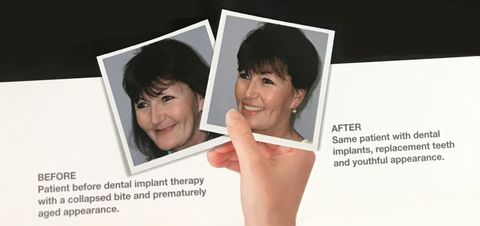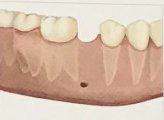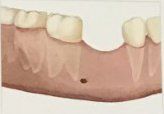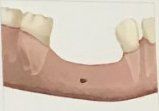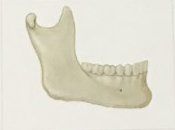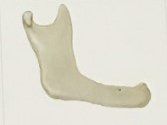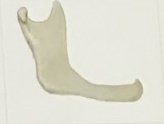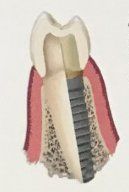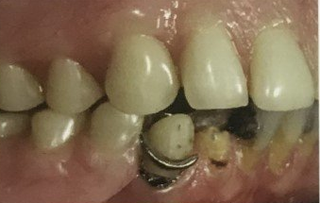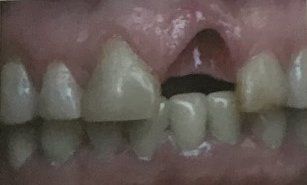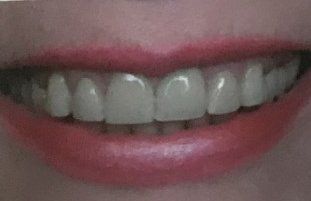Implant Restorative Dentistry
What You Need To Know About NOT Replacing Your Missing Teeth With Dental Implant Therapy
The Possible Consequences Of Not Replacing Your Missing Teeth:
- Loss of natural facial contours
- Increased facial wrinkles
- Loss of youthful appearance
- Loss of lip support
- Nose and chin are close together
- Difficulty chewing
- Digestive problems due to the inability to chew food properly
- Wearing dentures alone may accelerate bone loss
The Possible Advantages of Replacing Your Missing Teeth With Dental Implants
- Therapy that mimics nature
- Helps to preserve natural facial contours and aesthetics
- May minimize or reduce bone loss in area where implants have been placed
- Facilities proper eating and chewing
- Replacement teeth will not move as do non-implant supported partials and dentures
- Enhances quality of life
- If you are missing teeth, you are at an increased risk for oral bone loss
- Oral bone loss may lead to premature loss of healthy teeth
- Oral bone loss may cause a loss of facial contours
- Loss of facial contours may affect your natural facial appearance
- There are treatments available that may slow or even repair your oral bone loss
What You Need To Know About Oral Bone Loss
What Is Dental Implant Therapy?
Tooth Replacement Therapy That Mimics Nature
- An advanced therapy available to replace missing teeth.
- Dental implants are not replacements for missing teeth.
- Replacement teeth are created by your dentist and placed on the foundation provided by dental implants.
- These allow you to have the look, feel and function most like natural teeth.
- These offer several important advantages for replacing missing teeth.
The Possible Advantages Of Dental Implant Therapy:
- MINIMIZES oral bone loss
- REDUCES compromise to adjacent healthy teeth
- PRESERVES natural facial contours and appearance
- RESTORES oral function in a manner that most closely resembles natural teeth
How Dental Implants Work:
- Dental Implants are made with materials well accepted by the body
- Bone forms a natural mechanical bond with the dental implants
- Dental implants provide a base for your dentist to build your replacement tooth or teeth
A dental implant and implant crown are designed to mimic the look, feel and function of a natural tooth.
Replacing Your Single Missing Tooth
The Removable Partial Dentures Treatment Option
- May move during speech or eating
- May be physically and psychologically uncomfortable
- Visible metal hooks wrap around surrounding teeth to stabilize the partial
- Partials may look like "false teeth"
- These hooks may cause additional tooth loss due to mechanical forces on remaining teeth.
- May accelerate bone loss
- This may negatively affect the width, height and density of oral bone (creating bony defects)
- May be difficult to chew or eat properly
- May require multiple ongoing dentist visits for adjustments and relines
- May need to be replaced every 3-5 years.
The Possible Advantages And Long-Term Benefits Of A Dental Implant And An Implant Crown:
- An advanced therapy available to replace a missing tooth
- A more predictable solution for a missing tooth compared to other options
- A dental implant provides a foundation for your dentist to place an implant crown (your replacement tooth)
- A dental implant and implant crown are maintained similar to a natural tooth.
- A dental implant and implant crown can look, feel and function similar to a natural tooth.
- Unlike fixed bridges or removable partial dentures, this treatment option limits the compromise to your surrounding natural teeth.
- Oral bone integrates with the dental implant through a natural process
- May preserves both your oral bone and gum tissue
- May preserve your natural facial appearance

